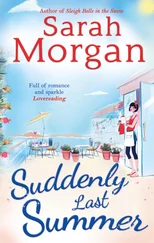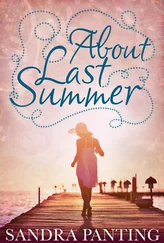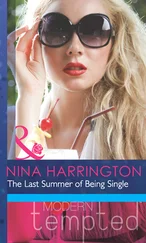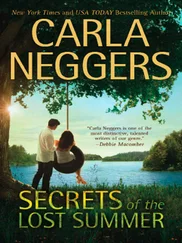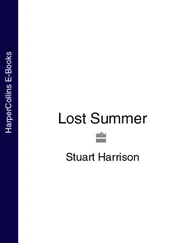“Roll over!” I shouted.
We were all in the water now, circling Rhoda like a school of sharks, trying to get close enough to help her.
“Damn it,” I said, “roll over!”
“Keep away from me!”
“You stupid idiot,” Sandy shouted, “he’s trying to get you to shore.”
“Don’t come near me!” Rhoda yelled, and struck out with her fist again, catching me on the cheek.
“Listen,” I said, “you’d better cut that out!”
“Slug her,” Sandy said again.
“You louses!” Rhoda yelled.
“Okay, leave her to drown,” Sandy said.
“Don’t you dare!” Rhoda said.
“Then roll over.”
“I’m not a trained animal act,” Rhoda said, and we all laughed. The smile broke on her face, metal bands catching sunlight, warmth spreading into her brown and frightened eyes. “Oh, all right,” she said, and rolled over.
I towed her toward shore, but the moment we reached shallow water, she stood up and ran for the beach and didn’t stop running until she had reached the dune. Standing on the high ground, she looked down at us like the lady of a besieged castle, and shouted, “Don’t come up here! You just go swimming around, and leave me alone.”
“The girl’s crazy,” David said.
“Absolutely paranoid,” Sandy said.
“The hell with her,” I said, and we went back into the water.
In a little while, Rhoda edged her way onto the beach, and then down to the shore. Demurely, she removed the life jacket. She was tanned everywhere, except where her body was newly exposed by the bikini. The white flesh of her belly and the sloping tops of her breasts looked peculiarly vulnerable. Daintily, she stepped into the water.
“I’m ready to try again,” she called sweetly.
“Try being a human being, why don’t you?” I shouted, and Rhoda giggled. “Oh, okay,” I said, and swam in to where she was waiting.
“I’m sorry, Peter,” she said, and looked down at her feet.
By the end of the week, we had her swimming around the cove.
Those were golden days.
We took the boat out every weekday morning, blessed with sunshine and fair breezes, feeling healthy and lazy and contented. Rhoda seemed to fit in more easily now, laughing at our jokes, offering nonsense of her own, rarely wincing at our occasional profanities. The boom no longer threatened her; she would laze confidently beside the cockpit, her eyes closed, a curious half-smile on her face, her head thrown back to the sun. She even wore her bikini with casual authority now, her body uniformly tanned, her look of flabby respectability all but gone; she had lost seven pounds in the past week, and she told us she had never felt better in her life.
I was beginning to like her very much.
I don’t know what it was.
I found myself staring at her whenever her eyes were closed, finding new and interesting things in her face each time I studied it; the way her brows soared up over her eyes, like quick sure charcoal strokes, her long black lashes, her really marvelous nose with its prominently sculpted bridge tapering gently to a delicate winged tip, her mouth with its full lower lip and deep bow, the freckles that showed on her cheeks even through the tan, it was really a remarkable face. I didn’t even mind the bands too much, though I kept wondering what she looked like without them. Once, I stared so hard at her mouth that she opened her eyes as though sensing my penetrating gaze, embarrassing me, and then she smiled and the warmth came over her face again and into her eyes, and she winked at me.
I felt so completely happy last August.
I think I had felt that way only once before in my life, and that was when I was very small, maybe five or six years old. My Aunt Bess owned a little summer cottage in Spotswood, New Jersey, and my parents used to take me out there every weekend. It probably was a dumpy little place, I can’t even remember what the inside looked like. It was set in a little clearing surrounded by trees, and it was made of wood, and painted yellow, with small brown-shuttered windows. There was a water pump in the clearing, just outside the kitchen screen door. A big aluminum pot used to sit on a milk crate under the pump’s spout. The whole family went out to Spotswood every weekend, dozens of us, aunts and uncles, cousins, even my grandmother before she died. I still can’t figure out where we all slept, there must have been a hundred beds inside that tiny house. What I remember most is the activity in the yard. The pump was the nucleus of that house, you see, everything centered and swarmed about it. There was constant traffic through the clearing, screen doors opening and closing, the pump squeaking, water splashing.
I can remember a striped canvas beach chair, and me lying back in short pants, my legs crossed, and bright sunlight pouring into the clearing, and the trees around the yard swaying, looking so very tall. I can remember the hum of the family all around me, buzzing back and forth to the pump, calling to each other, laughing, all in brilliant sunshine, and I can remember feeling warm, and safe, and extremely well-loved.
I felt the same way last summer.
One day, while David and Sandy were exploring the bottom on the western end of Violet’s island, I took Rhoda up over the dune and showed her the golden patches of marsh, and then walked her slowly in the sunlight toward the sloping shelf of sand and the luxuriant pine forest. Unlike the one on Greensward, there was a sure sense of life in this forest, the tall healthy trees moving in the wind, the birds navigating flawlessly in and around the branches, the chittering of insects in the undergrowth, the restless motion of small wildlife rattling unseen everywhere. The forest on Greensward was dead. The fire had consumed it, had scorched the ground so thoroughly that even the tentative second growth was stunted and grotesque, as though the earth could nurture only mutants.
“I love it here,” I said, remembering my sense of awe that day with Sandy and David, remembering too their curious indifference to what I had found so moving.
“Yes,” Rhoda said simply, and squeezed my hand, and then turned to smile at me.
“When you smile...” I said, and then shrugged.
“What, Peter?”
“When you smile,” I said, “you’re beautiful.” I felt foolish saying it. I shrugged again.
“Thank you,” she said, and then caught her breath as though mustering the courage for what she would say next. Her words surprised me, I knew for certain she was blushing furiously beneath her tan. I heard the slight intake of breath, and then she said, “You’re beautiful even when you’re not smiling, Peter,” and then, immediately, “I’m sorry.”
“What for?” I said.
“I didn’t mean to embarrass you. I don’t know why I said that. I’m sorry.”
“I’m not embarrassed,” I said, even though I was.
“Peter, listen,” she said, “listen to everything.”
We listened. We stood holding hands, listening. A blue jay fluttered into sudden flight, cawing into the treetops. Along the length of a fallen branch, a squirrel skittered and stopped, nervously scurried away again, head jerking, and disappeared. A grasshopper leaped into the air at our feet, tumbling like a circus acrobat, and somewhere in the bushes on our right a katydid? a cricket? a cicada? made repetitive scratchy music. Rhoda stood with her head tilted, the dark hair curling in wispy tendrils on the back of her neck, her eyes wide, a lance of sunlight touching her left shoulder. Her hand in mine tightened. I turned her gently toward me, and lifted her face, and kissed her.
She didn’t say anything.
She kept her lips together I couldn’t feel the bands at all.
We walked deeper into the forest and found a tree with an enormous trunk and sat with our backs against it, still holding hands. I began talking. Rhoda put her head on my shoulder and stared up at me, and I just kept talking and talking. I told her about Spotswood, New Jersey, and about the time we lost my Aunt Mary’s dog and had to go searching for him through the underbrush, and how we finally found him whimpering in a tangle of Virginia Creeper, as effectively trapped as if a net had been thrown over him. I told her about my own dog, whose name was Kettle, and which I used to own when we were still living on Seventy-second Street, that must have been about seven or eight years ago. We got rid of Kettle because one night my father came in drunk (I didn’t tell that to Rhoda) and tripped over the dog where she was sleeping in the dining room, and she bit him on the leg, and he began kicking her, and I came running from my bedroom crying and yelling for him to stop because I was afraid he’d kill her. That was before I learned my father was a drinking man. I couldn’t understand why he’d been so furious with poor Kettle that night, I simply couldn’t understand it. (I didn’t tell Rhoda any of this, I just told her he’d had a hard day, and was naturally angry when the dog bit him.) My mother called the A.S.P.C.A., and they came for the dog the next afternoon. I was supposed to be at school when they called for the dog, but they arrived at 3:30 on the dot, just when I was getting home, two big men in uniform, come to take Kettle. I began crying. My mother assured me they would take good care of the dog, and one of the men said, “Sure, Sonny, if somebody doesn’t claim her in a couple of days, they’ll put her to sleep just as gentle,” the bastard, though I’m sure he didn’t realize what he was saying.
Читать дальше
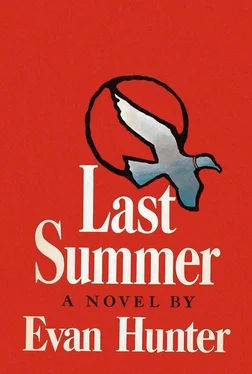
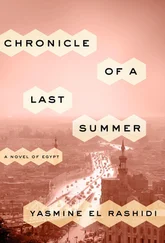
![Маргарет Миллар - Rose's Last Summer [= The Lively Corpse]](/books/384369/margaret-millar-rose-s-last-summer-the-lively-c-thumb.webp)

